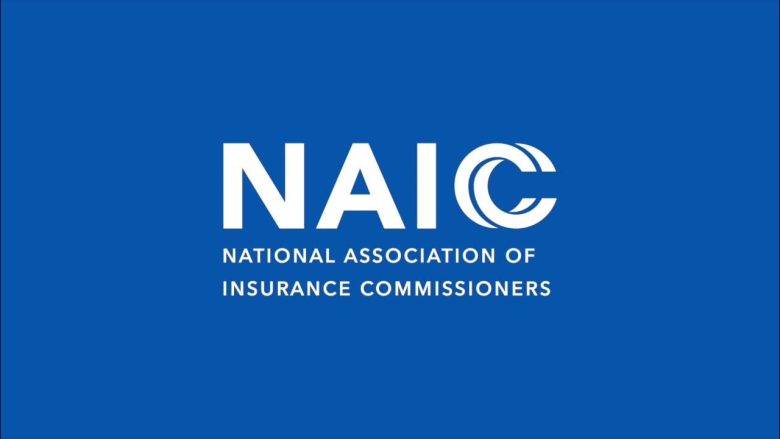Insurance is an important part of financial security, protecting individuals and businesses from unexpected losses. But with so many insurers in the market, there must be rules to ensure that everything is fair, clear, and safe for customers. This is a very important job for the National Association of Insurance Commissioners (NAIC). The NAIC is a regulatory support group that ensures that insurance regulations are followed in the United States.
It ensures that insurers follow the rules, that customers are treated fairly, and that the industry remains stable. But what is the role of the NAIC? Why is it important? This article will discuss the roles, responsibilities, and importance of the NAIC in the insurance industry. Understanding the responsibilities of an organisation can help customers make informed choices and feel confident in their insurance company.
What Does the NAIC Do?
The National Association of Insurance Commissioners (NAIC) is a group of insurance executives from all 50 states, the District of Columbia, and five U.S. territories. It is a non-profit organisation. The NAIC was founded in 1871 to harmonise insurance regulations in all states. It also provides advice to state insurance agencies. The National Association of Insurance Commissioners (NAIC) does not have direct legal authority over insurance companies, but it does have significant influence over the development of state laws and policies. The group is responsible for coordinating insurance regulations at the state level to ensure that companies can operate smoothly and consistently. The NAIC helps protect customers and maintain a competitive edge in the insurance marketplace by developing model laws and regulatory frameworks.
Why and How the NAIC Was Created:
One of the NAIC’s primary roles is to assist state insurance officials in maintaining fair and well-functioning insurance markets. The goal is to protect customers from unfair business practices, encourage competitive insurance pricing, and maintain the financial stability of insurance companies. One of the NAIC’s primary goals is to ensure that all 50 states follow the same rules. This makes it easier for insurance companies to do business in more than 50 states and still comply with customer protection laws. In addition, the organization provides regulators with useful data, research, and analysis to help them make informed decisions. By focusing on these goals, the NAIC helps to ensure a well-functioning insurance system, which benefits both customers and insurers.
How the NAIC Oversees the Insurance Industry:
The National Association of Insurance Commissioners (NAIC) does not directly oversee insurance companies, but it does have a significant influence on how insurance companies are regulated. States can adapt or adopt the model laws and regulations developed by the organisation to meet their needs. These regulations cover many aspects of the insurance industry, including policyholder rights, financial stability, and the functioning of the market. Insurance companies must adhere to the NAIC’s best practices and standards to ensure that business is conducted fairly and honestly. By working with state insurance regulators, the NAIC helps to ensure more uniform insurance regulation, which gives people greater confidence in the system.
Key Things the NAIC Does:
The NAIC helps the insurance industry in several important ways. One of the bank’s primary responsibilities is to monitor the financial health of insurance companies to ensure that they can pay their customers’ claims. The organisation is also important for consumer protection as it develops rules and tools that help people better understand their insurance plans and rights. The NAIC also manages the National Insurance Producer Registry (NIPR), which makes it easier for insurance professionals to obtain a license in various states. The NAIC also collects and analyses data, which is an important part of its job. It shares important details about market trends, company successes, and new ventures. By performing these tasks, the NAIC helps keep the insurance industry safe and secure.
Consumer Rights and the NAIC:
One of the primary responsibilities of the National Association of Insurance Commissioners (NAIC) is to protect consumers in the insurance industry. The organisation provides consumer education tools to policyholders so they can understand their rights, responsibilities, and options. The NAIC also maintains a consumer complaint database. It is a place where people can report problems to insurance companies and seek help from government officials. The NAIC also helps develop anti-fraud programmes and works with law enforcement agencies to stop unfair business practices in the industry. The NAIC takes these measures to ensure that consumers are not taken advantage of by dishonest insurance companies and that their financial interests are protected.
What the NAIC Can Do for Insurance Companies:
The NAIC’s primary responsibility is to protect consumers, but the organisation also helps insurance companies in important ways. The organisation provides insurance companies with rules and legal tools to help them comply with state laws and do business fairly. The National Association of Insurance Commissioners (NAIC) promotes standardised rules to make it easier for insurance companies to do business in multiple states. The NAIC also helps insurers prepare for emerging risks, such as cyber threats and climate change disasters, through research and recommendations. The NAIC’s work on these projects helps maintain a healthy and competitive insurance market, which benefits both companies and consumers.
The NAIC’s Role in Stopping Insurance Fraud:
Theft of insurance is a major problem that affects both the owner and the policyholder. The National Association of Insurance Commissioners (NAIC) works with law enforcement agencies to develop programs to combat theft. The organisation provides state regulators with training and tools to help them detect suspicious behaviour and take corrective action. The NAIC also maintains a national fraud database that regulators and insurers can use to share information about fraud cases they are aware of. By taking these measures, the NAIC helps protect the reputation of the insurance industry and reduce financial losses from false claims.
Changes to State Insurance Laws by the NAIC:
Each state has its insurance regulations and governing bodies, but the NAIC plays a key role in setting those rules. The organisation provides model insurance laws and regulations that state legislators can look to when developing new insurance laws or updating old laws. States are not required to follow the NAIC’s recommendations, but most do. That’s because most states use these model laws as a guide to ensure that everyone in a business is following the same rules. With this approach, governments can ensure that consumer safety and industry growth happen simultaneously. The NAIC’s authority helps keep insurance regulations relevant and useful in addressing modern issues.
Issues the NAIC Must Address:
The National Association of Insurance Commissioners has a heavy workload, but it also faces many challenges in regulating the insurance industry. One of the most important issues is finding a balance between national independence and the need for uniform rules. Because insurance is administered at the state level, it is difficult to ensure that insurance systems are consistent across the country.
Another challenge is keeping up with technological changes. Digital transformation and new risks require that rules be continually updated. The NAIC must also address complex global insurance issues, such as the impact of climate change and international insurance regulations. Despite these challenges, the group continues to change and adapt to ensure that the insurance market remains fair and functioning well.
Conclusion:
The National Association of Insurance Commissioners (NAIC) is important to the insurance industry because it helps state regulators perform their duties, protect customers, and ensure the financial stability of the industry. The NAIC strives to make the insurance system clear and reliable by promoting model laws, consumer protection, fraud prevention, and regulatory guidance.
The NAIC does not directly enforce the law, but by influencing state regulations, the NAIC ensures that insurance companies act fairly and honestly. By understanding the NAIC’s responsibilities, people can better understand their insurance plans and hold insurance companies accountable for their actions. Although the insurance industry is constantly changing, the NAIC remains the primary force determining how insurance will be regulated in the United States in the future.
FAQs:
1. Is the NAIC part of the government?
No, the NAIC is not a business organisation. It is made up of state insurance regulators. It tells insurers how to comply with the rules, but it has no direct legal authority.
2. What steps has the NAIC taken to keep people safe?
The NAIC protects consumers by developing model laws, providing educational materials, keeping its complaint database up to date, and combating insurance fraud.
3. Can anyone file a complaint with the NAIC?
No, you must file a complaint with your state’s insurance department. On the other hand, the NAIC provides people with the opportunity to connect with local governments.
4. Why do states need to do what the NAIC requires?
States follow the NAIC’s recommendations because they contribute to the stability of the insurance market, provide uniform rules, and support fairness.
5. How does the NAIC impact insurance law?
The model insurance laws developed by the NAIC can be used as a reference by other states to ensure that insurance rules are fair and consistent. These rules affect the way insurance companies operate across the country.




